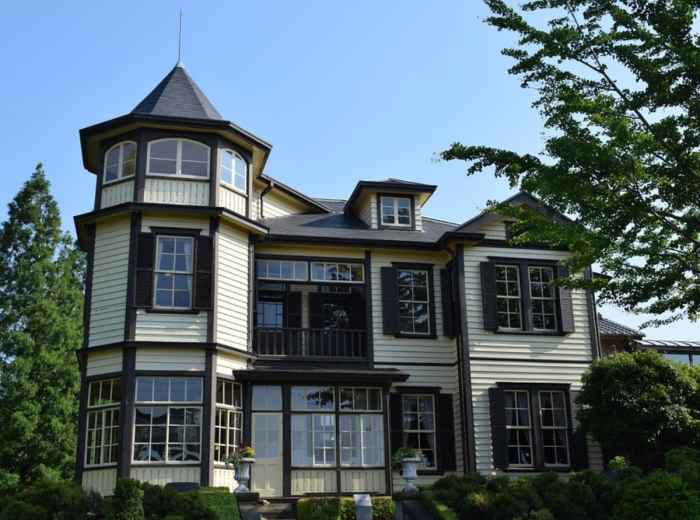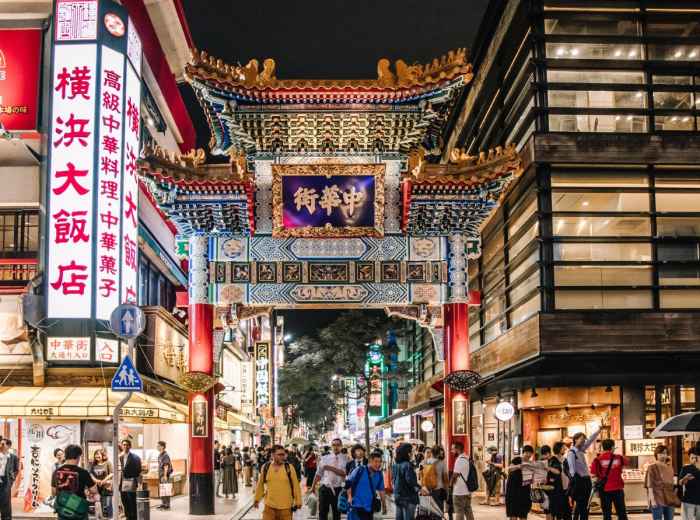
Where To Stay In Yokohama - Best Neighborhoods Guide
When travelling to an unknown city, it’s important to pick the right place to make your home base so you can explore the best the city has to offer. While there aren’t dozzens of Yokohama neighborhoods, since the Yokohama map is not as widespread as Tokyo and is more compact, I hope this guide will help you decide where to stay in Yokohama. One of the first entry points between Japan and the world, you could say that Yokohama – a lively, welcoming city – is somewhat of a birthplace for modern Japanese culture. Being just a hop skip and a jump from Tokyo (the fastest route from Yokohama to Tokyo trip will lasting between 20 and 25 minutes) it’s ideally located, providing just a bit of relief from Tokyo’s insane bustle. With an influx of foreigners since the 1850s, with a lot of politicians, ambassadors, and scholars of western politics, art, literature and medicine making Yokohama their home, it is now one of the few cities in Japan where you can observe the phenomenon called “wasyosecchu” – that fascinating fusion of Japanese and western culture. It’s discernible in every aspect of life, from the plan of the city and its architecture, to the food and art forms. Hop on board with me for a mini tour of the diverse neighbourhoods of this eclectic Japanese city and discover little by little what makes Yokohama’s such a fascinating visit.

Yokohama Station
Yokohama Station
The area that surrounds Yokohama Station is actually a trendy and chic suburb, and a good pick as far as where to stay in Yokohama goes. If this is the sort of ambience you’re after in your trip to Yokohama then you’ll find plenty to suit your needs. When it comes to what to do in Yokohama, this area is chock full of options! Bay Quarter for one is an elegant and sophisticated affair – a shopping mall built to resembling a cruise-liner. After a day of retail therapy you can enjoy a dinner with an astonishing view over the harbor. On the 2nd floor, you’ll find the Sea Bass, where you can buy a ticket to take you to Aka-renga soko (a refurbished warehouse now home to a handmade craft market) and Yamashita Park. Another great find in the area is the Joynas Forest Sculpture Park; a leafy park on the rooftop of Joynas, overlooking Yokohama Station. In the roomy 4600 square meter garden you’ll be treated to the sites of six sculptural works by contemporary Japanese sculptor Kyoko Asakura. In walkable distance is the must-visit Cup Noodle museum, where children can create their own instant noodles, from flavour to packaging design! If you’re travelling to Yokohama with children this is an excellent choice for where to stay with several of the best amusement parks and hotels in Yokohama located nearby.

Yamate
Yamate
The best way to discover Yokohama’s unique history and cultural phenomenon of wayō-secchu would be on foot, but there is also a city bus, called Akai Kutsu running in a loop around the Motomachi/Yamate area, where most of these unique historical traces can be found. This area is a popular choice for living in Yokohama, being as it is more on the residential side and generally inhabited by locals who enjoy spending time outdoors, and have a love of history, culture and green spaces. The Yamate area is famous for its rose gardens which bloom beautifully in May and November, but the area offers a host of other great attractions! Enoki-Tei, established in 1927, is one of the oldest cafes and western pastry shops in Japan. A delightfully quaint place, set beneath the leafy stretch of a ginormous old tree, their hand made cakes and teatime treats are delicious, with their specialty being the Cherry Sand. Stop in for a picturesque break in the lush beautiful garden, enjoying views on the Yamate area, surrounded by stunning architecture. Another wonderful coffee stop in the Motomachi area, Café de Lento is a more modern place to have a break. Be sure to try their specialty – the strawberry cheese tart – it’s to die for!

Between Shin-Yokohama and Motomachi stations
Between Shin-Yokohama and Motomachi stations
As mentioned before, it’s a tricky task to separate Yokohama into neighborhoods, because the city is so compact as to have no truly distinct neighborhoods, which is why there is an unavoidable overlap. This is particularly clear here, in the surroundings of Shin-Yokohama station where the Shinkansen stops – convenient for people coming by Shinkansen with a lot of suitcases! – falling in close proximity to the Minato Mirai and Motomachi areas. If you don’t have a clear idea of what to do in Yokohama on your visit, this might be for you as its centrally located to many areas with good attractions. One place you can’t miss in the area is the Ramen Museum; a building that has been designed to mimic the retro atmosphere of the 1950s, with a line up of some of the best Ramen shops the country from that time. You can learn the ins and outs of ramen culture and history, and even sample some ramen on the spot for an additional fee. The closer you move to Motomachi station, the stronger the the peculiar multicultural atmosphere grows, in tandem with the various green areas such as gardens and parks. At night it’s lovely to have a walk along the seafront, and the area also happens to be a good access point for day trips to Kamakura and Enoshima.

Minato Mirai area
Minato Mirai area
The Minato Mirai 21 area is Yokohama's new city center and hub for business, shopping and tourism; an urban seaside suburb whose name translates to "harbor of the future" – and one it certainly lives up to with a skyline like something out of a sci-fi movie. With a multitude of high-rise buildings including the Landmark Tower (Japan's tallest building from 1993 to 2014) Minato Mirai is an example of grandscale city-planning with a vision that began back in the 80s to connect Yokohama's older commercial centers of Kannai with the Yokohama Station area. Naturally the area attracts visitors and businesspeople from all over Tokyo, feeding the many major hotels, conference venues (such as the Yokohama convention center) and office towers. It’s not all business though; amongst the various corporate centers you will also find art museums, cafes, busy shopping centers and the Cosmo World Amusement Park.

Kannai
Kannai
You might be surprised to learn that despite being the common name of this area for over a century, Kannai is not the official name. The nickname Kannai translates to “barrier to the inside” – referring to the barrier that once separated Western and Japanese residential areas. Situated adjacent to Minato Mirai 21, Kannai is the administrative and commercial heart of Yokohama, home to many of the major government offices and municipal bodies. The area encompasses the old districts of Bashamichi, Chinatown, and Yamashita Park and is bounded in part by the waterfront, making it a favourite with visitors. Yamashita Park in particular is great if you feel like spending the day in a seaside park, or taking a long seaside stroll with a view of Yokohama port at night. You can easily drop in at Yokohama Chinatown, a popular spot – as many of the Chinatown districts in Japan are – among tourists and foodies alike. For some great tips on where to find the best of Yokohama’s yum factor, check out this food guide.

Noge
Noge
Somewhat of a hidden gem unknown to Tokyoites, Nogecho – or Noge as it is more commonly called – is a vintage riverside hub with a vibrant nightlife scene full of tiny bars, retro izakaya (Japanese bars) and low-key jazz clubs. The jazz scene in Noge (and other parts of Japan, such as Kobe) is one of the best examples of the creative Japanese twist on Western culture. In addition to the music scene there are some delicious feasts to be had down the narrow, lantern-lit streets and alleys of Noge, lined with restaurants serving soba noodles, yakitori skewers and Yokohama-style hayashi, a western-style Japanese beef stew. The entertainment options are equally plentiful, including Nigiwai-za theater which hosts a variety of live Japanese entertainment such as stand-up comedy and vaudeville-style musical shows. Sandwiched between the bustling business and entertainment districts of Minato Mirai and Kannai, Noge makes for a coy, vibey escape from the bright lights and busy centres, providing an evening getaway with old school charm and the perfect ambiance in which to unwind after a long day of adventures in Yokohama.

